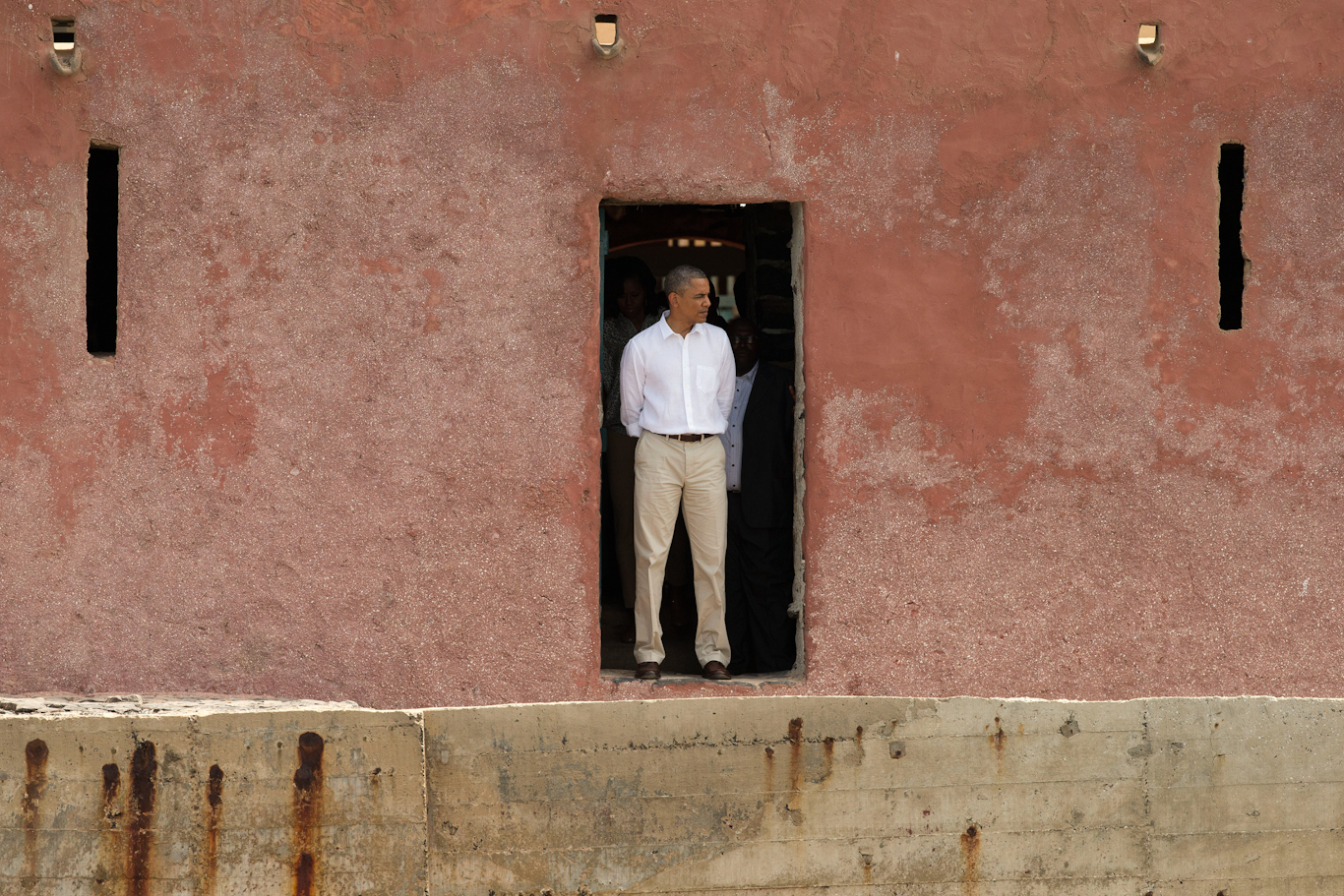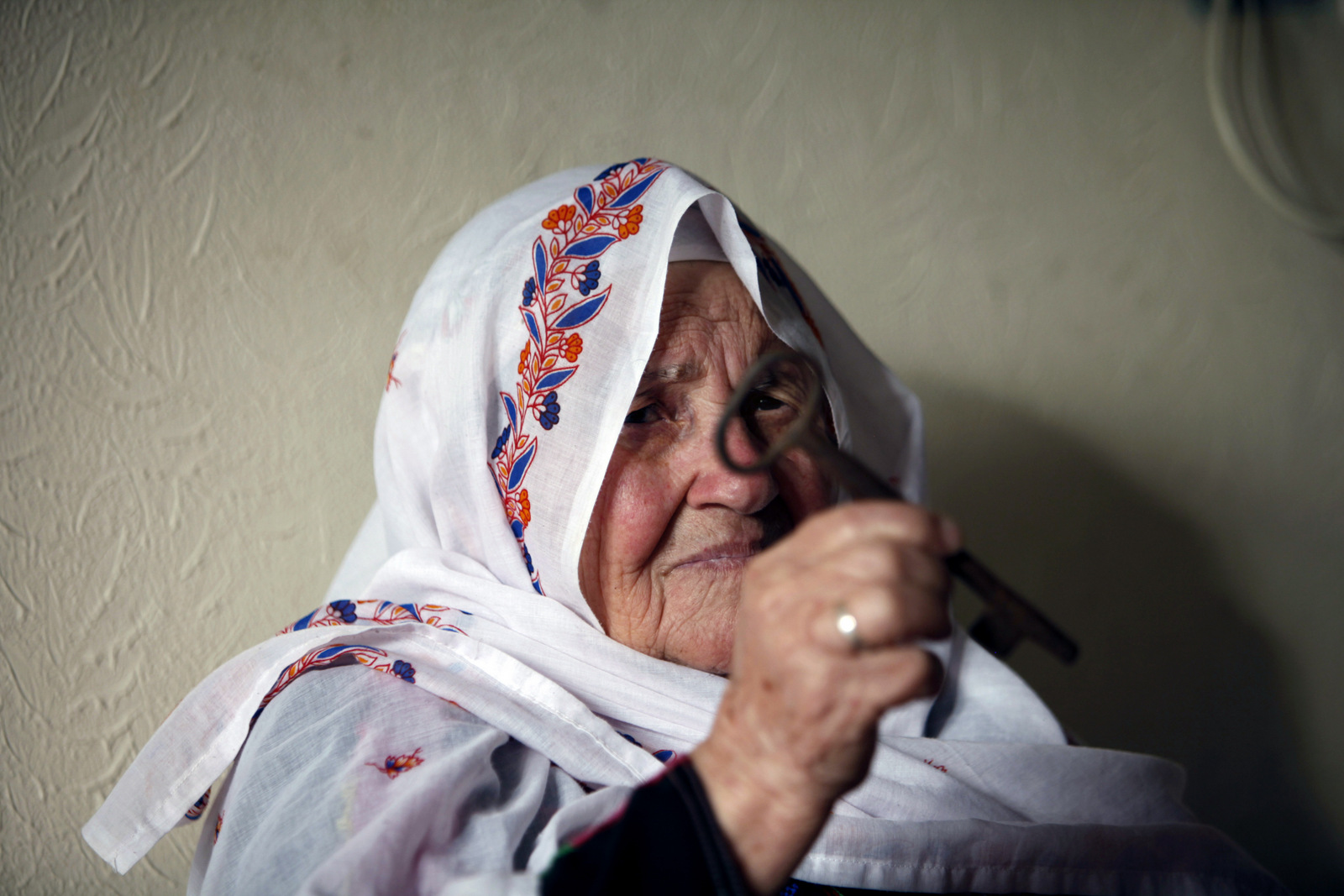The calls “Black Lives Matter” and “Free, Free Palestine,” serve to remind us that Palestine is not free and that if the lives of Black people mattered, there would be no need for the call. In both cases, people are in the grips of a cruel, racist system that refuses to let go. In both cases, people are being hunted down, caged, strangled, and shot to death, and the root cause of their suffering is rarely addressed.
In Palestine, the return of refugees is the issue that has the capacity to completely alter the conversation and ultimately bring justice to Palestinians. However few are willing to bring it up, much less to discuss it seriously. In America, the issue of reparations to descendants of slaves is arguably the issue that will force an honest conversation and provide some semblance of justice to Black Americans, and yet it too is rarely discussed in public forums.
Are people being too polite? Is it a fear of making someone feel uncomfortable, or is it that people have given up? What is it that keeps conversations on these important, pivotal issues from bursting into the public debate?
In Palestine, the perceived legitimacy of the Zionist regime and the far reach of the Zionist PR machine, or Hasbara, is keeping the issue from being raised. In the U.S., the lack of real discourse about the horrors and the legacy of slavery is preventing Black Americans from real emancipation. People are generally not aware of the amount of wealth the United States amassed on the backs of African slaves, nor are they aware of the necessity to compensate the descendants of slaves through reparations.

Barack Obama at the ‘Door of No Return,’ at the slave house on Goree Island in Senegal where slaves were shipped to the Americas. Rebecca Blackwell | AP
According to an article titled, “Why we need reparations for Black Americans” by Rashawn Ray and Andre M. Perry, published in Brookings Policy 2020, “the case for reparations can be made on economic, social, and moral grounds.” The article continues, “The United States had multiple opportunities to atone for slavery […] but has yet to undertake significant action.” It goes on to state that, “Black Americans are the only group that has not received reparations for state-sanctioned racial discrimination.”
In the June 2014 issue of The Atlantic, Ta-Nehisi Coates wrote that “America begins in black plunder and white democracy, two features that are not contradictory but complementary.” And, he adds, that “American law worked to reduce black people to a class of untouchables and raise all white men to the level of citizens.”
A house built by slaves
When Michele Obama spoke in front of the 2016 DNC, her speech created waves. What caught people’s attention was her statement, “I wake up every morning in a house that was built by slaves.” The families of those slaves have not yet been compensated for their work,” and yet, she added, “this right now is the greatest country on earth.” Since such injustice is allowed to go on, one wonders where exactly she sees this “greatness.”
In June 2016 she gave a commencement address at City College in New York. Here again, she described the feeling of living “in a house that was built by slaves.” She described watching her daughters head off to school each day, “waving goodbye to their father, the president of the United States.” But why is it that neither she nor her husband, the first Black president of the United States, saw a need to find the descendants of the slaves that built the White House and compensate them.
Who and how
It is not uncommon for people to highlight the complexity of a given situation in order to avoid action. There are complex issues that need to be resolved, like what a reparations package should include and who would qualify. Similar questions are raised when one mentions the Palestinian right of return – who should be allowed to return and what a reparations package should look like. These are all important questions, and they can all be answered once there is a will and a demand to act.
According to Amnesty International, “Israel’s failure to respect the right to return for Palestinians who were forced to flee their homes in 1948 is a flagrant violation of international law that has fuelled decades of suffering on a mass scale.”

Azeza Abo Karesh, 83, a Palestinian refugee holds a key symbolizing the home she was forced to flee in 1948, at Shati refugee camp in Gaza. Adel Hana | AP
Israel’s prime minister, Benjamin Netanyahu, has said on many occasions that Palestinians have no right to return. The Anti-Defamation League, or ADL, is a Zionist organization dedicated to promoting the Zionist agenda and the defamation of Arabs and Muslims. According to them, the right of return is not viable on practical grounds. This, they say, is because “an influx of millions of Palestinians into Israel would pose a threat to its national security and upset the country’s demographic makeup.”
The demographic makeup of Israel was artificially designed to create a Jewish majority. The return of Palestinians to their land would create a Palestinian majority, but this would have been the case anyway had it not been for Israel’s original crime of artificially manipulating the population ratios in Palestine through ethnic cleansing.
The ADL also claims that “any international effort would also need to consider the situation of the 800,000 Jews who were either expelled from their native Arab nations or forced to flee.” There is no comparison to be made here and there is ample evidence that suggests that the claim is false. However, even if it were true, Palestinian refugees are not responsible for what may or may not have happened to Jewish people in Iraq or Algeria or any other Arab country.
We can expect to hear arguments that explain why injustice must go on, why the status quo is the best we can expect. While it is obvious that today, in the aftermath of the murder of George Floyd in Minneapolis and Iyad Halak in Jerusalem, the calls for justice are starting to be heard more than ever before, we are not there yet. Until a serious discussion on reparations becomes front and center in the U.S. and a serious discussion on the right of return becomes front and center in Palestine, the systemic denial of human rights to Palestinians by Israel and Blacks in America will not end.
Feature photo | Barbara Martin looks at a display about slavery in Mobile, Ala. after the discovery of the remains of the slave ship Clotilda, Aug. 26, 2019. Jay Reeves | AP
Miko Peled is an author and human rights activist born in Jerusalem. He is the author of “The General’s Son. Journey of an Israeli in Palestine,” and “Injustice, the Story of the Holy Land Foundation Five.”
The post Reparations and the Palestinian Right of Return: Two Sides of the Same Bloody Coin appeared first on MintPress News.
